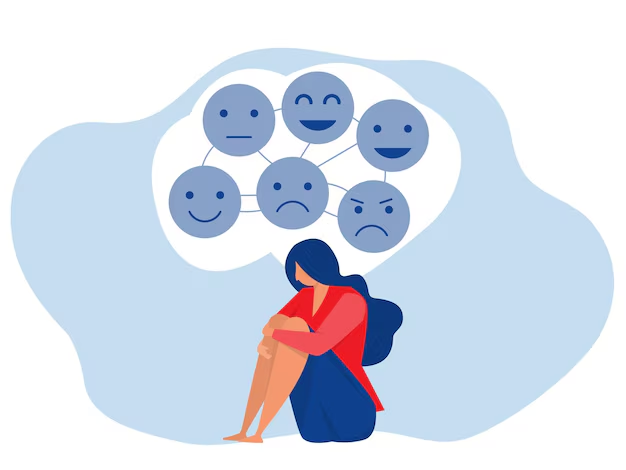
In today’s dynamic discussion on mental health, understanding emotional somatization is essential for patients and professionals alike. Physical symptoms triggered by emotional stress can be confusing and frustrating. This comprehensive guide explores the intricate connection between the mind and body, explaining how emotional stress manifests physically and offering research-based, practical strategies for recovery. By examining psychological mechanisms, effective treatments, and lifestyle adjustments, readers will discover empowering insights to reclaim their wellbeing in a challenging world.
Understanding Emotional Somatization
Emotional somatization is a process in which psychological distress is expressed through physical symptoms. Research indicates that anxiety and depression frequently appear as body aches, muscle tension, or gastrointestinal problems. This crucial mind-body connection helps individuals understand that persistent physical symptoms may have psychological origins.
Many patients become confused when they experience somatization, as their symptoms often resemble common ailments like headaches or chronic fatigue. Increasingly, medical professionals stress the importance of identifying the psychological roots of these issues. With enhanced diagnostic tools and a modern emphasis on mental health, clinicians can differentiate between organic issues and those stemming from emotional distress.
Recent studies reveal that somatization is often misunderstood, resulting in unnecessary tests and treatments. This misinterpretation becomes a barrier to effective care. Educating the public about the mind-body link builds confidence in seeking psychological help rather than relying exclusively on physical treatments. Awareness and understanding are the first steps toward true recovery.
Psychological Mechanisms Underlying Somatization in Mental Health

The psychological mechanisms behind emotional somatization involve intricate brain processes that link emotional regulation to physical responses. Stress hormones like cortisol play a significant role in translating mental distress into bodily symptoms. These processes can overwhelm the body’s systems, leading to chronic pain and other physiological changes.
A growing body of research shows that early life trauma and prolonged stress can sensitize neural pathways, increasing vulnerability to somatic symptoms later in life. Genetics, personal experiences, and environmental influences all contribute to one’s stress responses. It is therefore crucial to explore these varied perspectives to fully understand somatization.
Neuroscientific studies using advanced brain imaging reveal that areas such as the anterior cingulate cortex and insula may become overactive in individuals with emotional somatization. This overactivity is linked to increased physical discomfort and a lower threshold for pain. The combination of psychological insights and biological data is transforming treatment protocols and opening up new avenues for targeted interventions.
Treatment Approaches and Recovery Strategies

Treating emotional somatization requires a multifaceted approach that combines psychological therapy, medication, and lifestyle changes. Cognitive Behavioral Therapy (CBT) is highly recommended because it helps patients identify and reframe negative thought patterns that worsen physical symptoms. In addition, mindfulness practices can reduce anxiety and boost overall mental clarity.
Mental health professionals strongly advocate for personalized treatment plans tailored to each patient’s needs. Individualized care is essential for sustainable recovery. Whether through psychotherapy, pharmacological support, or alternative practices like yoga and meditation, the goal is to empower patients to manage their symptoms effectively.
Support groups and community involvement also play an important role in the recovery process, offering a space to share experiences and techniques. Trusted organizations such as the World Health Organization provide guidelines that integrate traditional therapies with alternative methods for best outcomes.
Lifestyle Changes and Long-Term Mental Wellbeing

A healthy lifestyle is key to long-term mental wellbeing, particularly for those affected by emotional somatization. Regular exercise, a balanced diet, and proper sleep contribute significantly to reducing stress and achieving neurochemical balance. Even moderate physical activity can trigger the release of endorphins, acting as a natural pain reliever.
Engaging in social activities and pursuing hobbies can improve mental health by reducing feelings of isolation and fostering a sense of community. A strong social support network is vital for recovery. Establishing structured routines and setting personal goals further encourages proactive management of mental health.
Achieving long-term success in managing somatization is about continuous effort and adapting strategies over time. Integrative approaches combining traditional therapy with alternative practices, such as acupuncture or art therapy, are often successful. Authoritative sources like the National Institute of Mental Health advocate this diverse approach, ensuring that all aspects of a person’s health are addressed.
Future Perspectives and Integrative Approaches
Continued research in mental health is paving the way for innovative treatments of emotional somatization. Emerging studies suggest that breakthroughs in neurotechnology and genetic research may soon offer highly individualized treatment options. Technologies like neurofeedback and personalized medicine are on the horizon, promising enhanced recovery outcomes.
Integrative approaches that combine traditional therapies with modern technological advances will shape the future of mental health care. Collaboration among neuroscientists, psychologists, and alternative health experts is essential for developing comprehensive and effective treatments for emotional somatization. The evolution of mental health science brings hope for more precise diagnoses and personalized therapies.
Patients and practitioners should stay informed about these advances. As the field of mental health evolves, the focus will shift from simply managing symptoms to developing preventative strategies. Future guidelines may incorporate digital health tools and teletherapy, making quality care accessible to a broader population. The integration of multidisciplinary research is set to transform mental health recovery for years to come.

Content Additional
Beyond the main sections, additional aspects further enrich the discussion on emotional somatization and mental health recovery. Cultural influences and societal expectations often shape how symptoms are reported and managed. Exploring social stigma and the accessibility of mental health services can help identify and bridge gaps in current treatment methods.
Moreover, the economic effects of untreated emotional somatization are significant, impacting workplaces and overall quality of life. Research from reputable institutions such as the Mayo Clinic and the American Psychological Association demonstrates that early intervention not only improves individual health outcomes, but also reduces the broader societal burden of chronic illness. Recognizing these impacts is essential to foster a more inclusive and effective healthcare system.
Future research should also explore digital therapeutic tools. Mobile applications and online counseling platforms have the potential to bridge the gap between traditional therapy and everyday mental health care. These technological innovations empower individuals by providing self-help resources and real-time monitoring of symptoms, facilitating a proactive, personalized recovery process. Embracing technology in mental health care is a significant step forward in democratizing access to quality treatment.
The exploration of emotional somatization reinforces the powerful link between our mental and physical health. By adopting targeted therapies, making lifestyle changes, and supporting ongoing research, individuals can better manage symptoms and nurture long-term mental wellbeing. Integrating modern science with holistic treatments transforms recovery into a realistic and hopeful goal. With personalized approaches and further scientific advancements, the future of mental health offers promising, innovative interventions.




